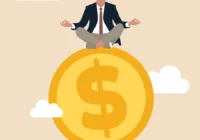The rich and powerful deserve more critical scrutiny instead of blind adulation if we want to live in an equitable democracy.
Human beings have long loved heroes. We love dragon slaying knights and swashbuckling conquerors. In the Old World, heroes are often tragic figures. It is not so in the US. Americans largely belong to the cult of success. Some admire Slick Willie Bill Clinton, others want Donald Trump to “make America great again” and yet others think Steve Jobs to be God. Perhaps this cult of success needs revisiting. Not everyone rich gets there because of the honest sweat of their brow, the magic of the markets and the divine inspiration.
The rich have been in focus of late thanks to the Panama Papers. This week, companies and their taxes came under focus. Steve Wozniak declared that Apple and indeed all companies should pay more tax. He wants Apple to pay the same taxes as him, at a rate of 50%. Wozniak, or Woz as he is popularly known, founded Apple along with Steve Jobs and Ronald Wayne. Jobs once purportedly called Woz “Rain Man” because he was a technical genius who liked making things and cared two hoots for money.
Jobs was different. In Woz’s words, “Steve Jobs started Apple Computers for money, that was his big thing and that was extremely important and critical and good.” Jobs achieved mythic status around the world even during his lifetime for creating products that changed the way people live. From Apple II to iMac, Toy Story to iPad, Jobs was the visionary who made Apple the multibillion dollar company it is today.
Yet Jobs was far from perfect. As has been well chronicled, he was ruthless and controlling. Jobs lied to Woz about the money Atari paid to make a new Breakout video game. Woz worked nonstop for four days and four nights to produce a technological marvel. Jobs told Woz that Atari paid $700 for the game whilst the real amount was $5,000. Years later, Woz found out about this lie. He was deeply hurt and confessed, “I did cry, I cried quite a bit when I read that in a book.”
This lie was nothing when compared to the one Jobs repeatedly stuck to regarding his daughter, Lisa Brennan-Jobs. Jobs impregnated his high school sweetheart but denied paternity. As per International Business Times, Jobs “even swore in court documents that he could not be Lisa’s father because he was sterile and infertile, and as a result thereof, did not have the physical capacity to procreate a child.”
In an age of consumerism, such behavior does not bother his devotees. An Israeli mathematician told this author in December 2012 that Jobs was a great man because he brought much joy to people’s lives. The mathematician claimed that his own life would be significantly poorer were it not for Jobs. He excused the deceit, dishonesty and despotism of Jobs on the grounds that all human beings are flawed and we are not in a position to judge a man as great as Jobs.
Every age worships its supermen. Joseph Stalin was a great god to many despite his brutality and bloodthirstiness. Even today, people flock to the Taj Mahal to celebrate romantic love. Prince William and Duchess Kate Middleton posed in front of this elegant edifice only recently following in the footsteps of Princess Diana. People conveniently forget that Shah Jahan, the emperor who built the Taj Mahal, killed all his male relatives to ascend the throne. They also forget his extortionate taxation that led to a frightening famine. Peter Mundy, an English traveler in India at that time, observed that “the dead were dragged out by the heeles starke naked, of all ages and sexes, till they are out of the gates, and there they are lefte, soe that the way is halfe barred up.”
Perhaps our Israeli friend is right. Jobs can be forgiven for his sins for his expensive products and his entrepreneurial success. He merely lied to Woz and about his daughter. By comparison with Stalin or Shah Jahan, Jobs is a veritable saint. Somehow, this does not ring right. Jobs was a genius but he was also an ambitious man who would use any means to attain his ends. After all, this is a man that appropriated Mahatma Gandhi, Albert Einstein and Muhammad Ali in a breathtaking “Think different” advertisement only to run Apple with a secrecy that Machiavelli would have approved of.
The fact that most people gloss over Jobs’ less than honorable actions is a testimony to his mythical marketing skills as well as the zeitgeist of the 21st century. The prevailing myth in Wall Street and Silicon Valley is that the world is better off due to the innovation and risk taking of “the crazy ones.” Those who have initiative build products and services that serve society and bring them commercial success. Money is a medium of exchange that reflects the right value a person provides to society. Only Americans remark, “if you’re so smart, why ain’t you rich?” As per this worldview, a company is not merely a means to make money but to change the world.
As with all myths, there is an element of truth. As Ludwig von Mises rightly pointed out, markets with their efficient price signals work better than command and control economies. Stalin’s Soviet utopia was a deadly nightmare for those who lived in it. Other communist countries were not much better. Over the years, people risked life and limb to cross the Berlin Wall. When it collapsed and the Soviet Union crumbled, Francis Fukuyama posited the end of history “and the universalization of Western liberal democracy as the final form of human government.”
Yet democracy itself is in crisis. The internet was supposed to have brought us all together. It was meant to give us the entire knowledge of the world on the beautiful machines that Jobs built. Yet the rise of Hillary Clinton and Donald Trump demonstrates that all is not well even in the Rome of our day. One has a track record of unctuous duplicity whilst the other is a boorish bully. Both have tons of money and their flaws like that of Steve Jobs do not matter.
The US today is going through a deep crisis. Its society is deeply unequal with terrible intergenerational mobility. Far too many jobs have fled to emerging economies where the cost of labor is low and polluting the environment is largely free. Companies like Apple design their expensive products in Cupertino and have them manufactured in cheap China. At Foxconn, the company that manufactures Apple gadgets, 150 workers threatened to leap off the roof in protest against inhuman working conditions. Now, Foxconn has installed safety nets. Its workers cannot even kill themselves. Perhaps, it is time to question this cult of Nietzshean Übermensch like Steve Jobs.
Underpinning the cult of Jobs is a fundamental human need to believe in something. It takes the form of belief in a person sanctified by tradition like the pope or a monarch. Many place their faith in religion or ideology such as Catholicism or communism. Still others venerate athletes, artists and entrepreneurs. In the case of the deification of Jobs, the veneration of the person is fused with Reaganesque triumphalism about the victory of American capitalism over Soviet communism.
American capitalism rests on the myth that hard work leads to success. As mentioned above, it also evaluates success almost exclusively in terms of money. In India, Saraswati, the goddess of learning, is said to be a rival of Lakshmi, the goddess of wealth. In France, the myth of the poor artist in the garret still persists. Even in a China where girls prefer crying in BMWs to smiling on bicycles, Confucian ideals live on. By contrast, even churches in the US are big business and much more transparently so than other parts of the world.
In such a society, there is an easy argument to make to keep taxes low. To paraphrase Trump, governments are stupid. They waste taxes on boondoggles. Often, they are corrupt. Red tape is strangulating small business. People need lower taxes and companies need freedom to operate to keep the American economy ticking. The Ayn Rand world of Atlas Shrugged dominates American thinking. It is the likes of Steve Jobs and Mark Zuckerberg who make this land what it is.
There is more than an element of truth in the above argument. Small businesses are indeed hurting. The government bureaucracy is certainly wasteful and often largely unaccountable. There are wheels within wheels in the government and, as Desh Deshpande points out, the tired approaches of handouts, assistance and aid are not working. Yet the cult of success and the worship of Übermensch are destructive too. Americans have to accept that not everyone who fails deserves to do so. Some Buddhist compassion might prove helpful. Similarly, Übermensch have feet of clay and are often corruptible if not corrupt. Society has to ceaselessly curb their power and hold them up to scrutiny if it desires any form of democracy or equity.
Rain Man Woz has a point. Today, the companies pay too little tax. Their expensive accountants and clever lawyers are helping them find ways to stash away their wealth overseas. They have triggered tax and regulatory arbitrage, which simply means blackmailing countries to lower taxes and regulations with the threat of moving elsewhere. Investment banks, hedge funds and private equity firms have long played this game. Today, Internet giants like Apple, Amazon and “Don’t be evil” Google have joined it.
Woz is right. Companies ought to pay the same tax as him. And as Warren Buffet points out, he should not pay a lower rate of tax than his secretary.
*[You can receive “The World This Week” directly in your inbox by subscribing to our mailing list. Simply visit Fair Observer and enter your email address in the space provided. Meanwhile, please find below our finest articles for the week.]
Better Education Can Decrease Wealth Inequality
Inequality in education is at the forefront of the global wealth gap.
Today the world is doing a lackluster job of finding sustainable solutions to global inequality. This crisis is evident in cities like Lima, Peru, where a “wall of shame” separates the wealthy neighborhoods from the poor shantytowns. It is disconcerting that the United Nations (UN) estimates today that 1.2 billion people live on less than $1 a day, while Forbes reports that the world’s 1,810 billionaires hold a net worth of $6.48 trillion.
The world’s failure to effectively fight poverty can be significantly attributed to corruption, as most heads of state are more concerned with pleasing their wealthy financiers and retaining power. In addition, global thought leaders use inequality as a quest for global fame and padding their bank accounts. Sadly, the majority of influential global leaders lack sincere passion for the poor and compete for awards or reelection, instead of working together to find legitimate solutions… Read more
The Fuss About the UK Government’s EU Referendum Booklet
The EU will need to integrate much more closely if the dream of a United States of Europe is to ever come true.
The long-awaited booklet from the British government on the forthcoming European Union (EU) referendum arrived recently in the post-boxes of 27 million households in the United Kingdom at a cost of more than £9 million ($12 million), all of which has been paid for by the taxpayer.
There were loud outcries from the British press that it was a waste of taxpayers’ money and even louder cries from those wanting to leave the UK that the booklet constitutes “propaganda” and is “unfair.” The government argued that they had a duty to inform the public about the issues arising from the forthcoming referendum.
If the booklet was intended to inform the public in order to support the government in persuading the public to vote to remain in the EU, it fails miserably as it is a… Read more
Shakespeare Lives
Over half the world’s school children study Shakespeare today, yet there are still 250 million children who cannot read or write.
Even if you aren’t an avid reader, you will know his words. William Shakespeare’s immortal language and unforgettable characters permeate the fabric of cultures around the world, opening up a magical universe where the past lives on to guide the present.
A lot has changed in the 400 years since the bard’s death on April 23, 1616, but the subjects of his plays—love, loss, ambition, rage, madness, downfall and, always, laughter—are the indomitable human passions that few have probed to such depths. From his catalogue of human folly, vice, intrepidness and compassion, we learn to understand ourselves and the world around us.
According to a 2011 poll commissioned by the British Council and the Royal Shakespeare Company, over half the world’s school children study Shakespeare today, yet there are still 250 million children who cannot read… Read more
The views expressed in this article are the author’s own and do not necessarily reflect Fair Observer’s editorial policy.
Photo Credit: Andrey Bayda / Shutterstock.com
 We bring you perspectives from around the world. Help us to inform and educate. Your donation is tax-deductible. Join over 400 people to become a donor or you could choose to be a sponsor.
We bring you perspectives from around the world. Help us to inform and educate. Your donation is tax-deductible. Join over 400 people to become a donor or you could choose to be a sponsor.
Support Fair Observer
We rely on your support for our independence, diversity and quality.
For more than 10 years, Fair Observer has been free, fair and independent. No billionaire owns us, no advertisers control us. We are a reader-supported nonprofit. Unlike many other publications, we keep our content free for readers regardless of where they live or whether they can afford to pay. We have no paywalls and no ads.
In the post-truth era of fake news, echo chambers and filter bubbles, we publish a plurality of perspectives from around the world. Anyone can publish with us, but everyone goes through a rigorous editorial process. So, you get fact-checked, well-reasoned content instead of noise.
We publish 2,500+ voices from 90+ countries. We also conduct education and training programs
on subjects ranging from digital media and journalism to writing and critical thinking. This
doesn’t come cheap. Servers, editors, trainers and web developers cost
money.
Please consider supporting us on a regular basis as a recurring donor or a
sustaining member.
Will you support FO’s journalism?
We rely on your support for our independence, diversity and quality.









